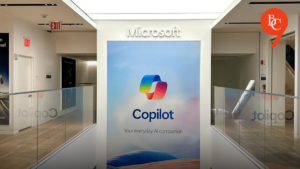Microsoft indicates that the gaming AI demonstrated in Overwatch 2 will be implemented only if developers believe it’s not ‘unfair’

Microsoft’s Gaming AI in Overwatch 2: What You Need to Know
Microsoft recently revealed an exciting new gaming AI feature for Overwatch 2. However, there are some important considerations that the developers must address before it becomes a permanent part of the game.
The Introduction of AI in Gaming
As technology evolves, artificial intelligence (AI) has begun to play a larger role in online gaming. AI can enhance player experiences by offering smarter non-player characters (NPCs), developing more engaging storylines, and even assisting players during gameplay. In Microsoft’s demonstration, the spotlight was on an AI that adjusts gameplay elements intelligently.
Benefits of AI in Overwatch 2
Improved Gameplay Experience: The AI aims to adapt to player behaviors, making the game more responsive and enjoyable.
Enhanced Competitive Balance: A well-designed AI can help ensure fair matches by analyzing the performance of players and making adjustments accordingly.
- Learning Capabilities: AI can learn from each match, improving its performance over time, which leads to dynamic gameplay that feels fresh and engaging.
Concerns About Fairness
Despite the potential advantages, Microsoft raised a critical caution about the integration of AI technology. The primary concern revolves around fairness in competitive settings.
Impact on Skill Levels: Players worry that AI might provide advantages to less skilled users, creating an uneven playing field.
- Predictability: If the AI becomes too predictable, it may hinder the excitement and unpredictability that are so vital to multiplayer gaming.
To address these concerns, Microsoft has made it clear that the AI will only be incorporated if developers are confident that it won’t give unfair advantages to players. This careful consideration highlights the importance of maintaining competitive integrity in the gaming community.
The Developers’ Responsibilities
Game developers play a critical role in ensuring that any introduced AI features contribute positively to gaming experiences. Here are some responsibilities they must keep in mind:
Balancing the AI Features
Testing and Feedback: Developers should extensively test the AI in various scenarios and gather player feedback to gauge its impact on gameplay.
- Adjusting Difficulty Levels: The AI should be tailored to suit different skill levels, ensuring that it does not overwhelm novice players while still providing a challenge for veterans.
Transparency with Players
Communication: Developers should be open about how the AI works and any changes it makes to gameplay.
- Continuous Improvement: There should be a commitment to regularly refine the AI based on player input and performance metrics to ensure it remains fair and engaging.
Future of AI in Gaming
The introduction of AI like that seen in Overwatch 2 marks just the beginning of its potential in gaming. Here are some future trends to watch:
Personalized Game Experiences: AI may allow for tailored gaming experiences that adjust levels, storylines, and challenges based on individual player preferences.
Richer Worlds and Narratives: AI can aid in creating more immersive worlds with realistic character interactions and evolving storylines.
- Ethical Considerations: As AI becomes more advanced, ethical questions will arise regarding its use in gaming, including fairness and accessibility.
Overall, the integration of AI in games such as Overwatch 2 offers promising advancements, but it must be approached with caution. Ensuring that these features enhance the player experience without creating imbalances will be paramount to their success in the gaming community.





